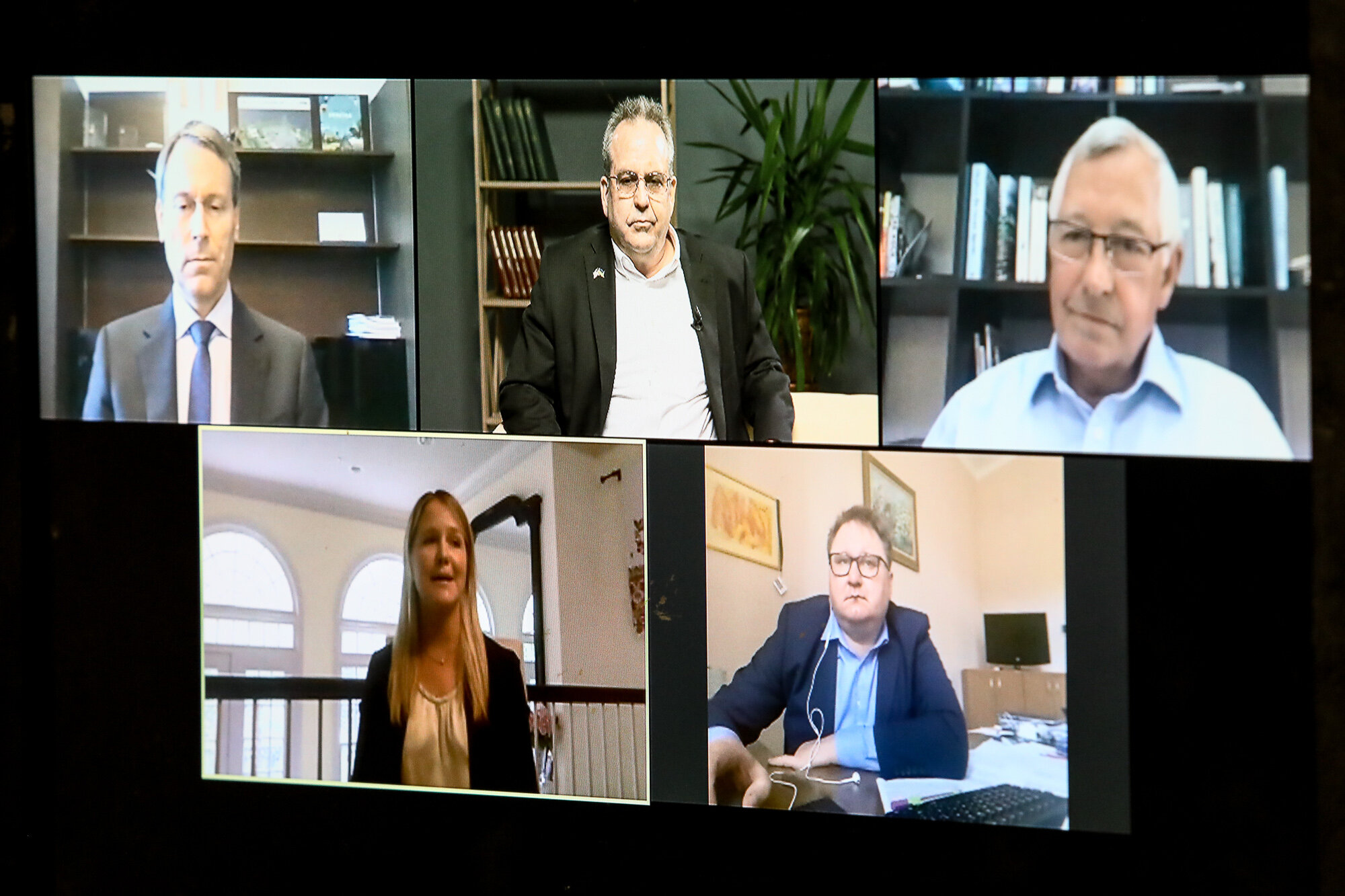Ukraine has the resources to overcome the global financial crisis caused by COVID-19 and, in fact, should use it as an opportunity to leap forward, according to Alexa Chopivsky, aide to Ukraine’s economy minister.
“When business as usual is not possible, it’s the perfect time to look for a new normal,” Chopivsky said during an online conference live-streamed on YouTube by the Kyiv Post and Ukraine’s largest private power company DTEK on May 27.
The priority now is to tell the whole world about Ukraine’s assets, Chopivsky said. Capital investment into the local economy shrunk by 35.5% in the first quarter of 2020. So the country should focus on communicating its strength to attract new foreign investors.
However, Nick Butler, professor and chair of the King’s Policy Institute at King’s College London, said the next two years are going to be tough for all countries, and for Ukraine too. The country has to face it with “absolute realism,” move away from its outdated economic policies and implement the rule of law.
“Ukraine has great potential,” Butler said, “but it’s not being fulfilled.”
Pillars of future economy
Ukraine ranked 64th in the World Bank’s Doing Business ranking in 2020, a historic high, Chopivsky said. At the crossroads between Europe and Asia, the country has an ideal location for trading with other countries and boosting its economy.
Chopivsky thinks that developing information technologies, as well as research and development, would be a good way to bring capital from abroad. That, she said, is the strength of Ukraine: its talented people.
“Ingenuity is deeply entrenched in Ukraine,” she said.
And there are success stories that prove it: Ukraine has become the birthplace of at least three so-called unicorn companies, including Grammarly and GitLab, startups now worth more than $1 billion. In total, tech contributes some 4% of Ukraine’s gross domestic product.
“Ukraine has to develop more technology, products and services based on knowledge, rather than on low wages,” she said.
But apart from IT, the country has more sectors to boast about, the economist believes. The country’s titanium exports, for example, increased by 12.2% in 2020 compared to 2018, reaching 52,400 tons or $12.6 million. This proves that heavy industry can also play an important part in the recovery of the local economy, Chopivsky said. Titanium is a crucial component for the aerospace industry.
The agricultural sector and e-commerce are also promising, but the country needs to improve its deregulation and help businesses to overcome the crisis, she said.

Philipp Leckebusch, CEO at DTEK Renewables (L-top corner), Nick Butler, professor and chair of the King’s Policy Institute at King’s College London (R-top corner), Alexa Chopivsky, aide to Ukraine’s economy minister (L- down corner) and Taras Kachka, deputy economy minister (R-down corner) took part in the online conference ”New Economic Reality” on May 27, 2020. (Oleg Petrasiuk)
Taras Kachka, deputy economy minister, thinks that the main challenge is to help businesses get loans and raise investments.
Before the coronavirus shutdown in Ukraine, the previous government led by former Prime Minister Oleksiy Honcharuk on Feb. 3 green-lit a program called “5-7-9,” which was designed to give affordable loans to domestic micro- and small businesses at record-low interest rates.
And Kachka plans to support this program in the future: “We want to facilitate businesses to have access to these loans.”
Financial help from the International Monetary Fund, meanwhile, will help rescue Ukraine’s economy… if this help is properly streamlined, Kachka said.
Ukraine and the IMF reached an agreement on new financial support worth $5 billion on May 21. The money will help the authorities address the adverse effects of the COVID-19 crisis.
However, Ukraine is still considered a “risky economy.” The country’s steel industry has been severely damaged by the lockdown, due to the automobile industry closing down worldwide and a sharp decrease in demand.
The metallurgical enterprises of Ukraine have cut their original annual production forecast for 2020 by 7% – to 20 million tons of steel. Almost all of it is usually exported: In 2019, the country exported 20.8 million tons of steel. In total, Ukraine’s metallurgical industry accounts for 30% of the country’s exports and 12% of its GDP.
Tackling energy crisis
Ukraine’s energy sector is in turmoil, and it’s going to get worse, experts say.
According to Butler, energy firms will face “real problems,” as the demand for energy will decrease by 10% over the next year, which will be extremely hard for the coal sector in Ukraine and the country in general.
On May 16, DTEK restarted its best coal mining complex in Dnipropetrovsk Oblast, some 560 kilometers southeast of Kyiv.
The company had to close the mines back on April 20 because of falling prices and low demand for electricity. Ukraine began easing its COVID-19 lockdown in late May and energy use is again on the rise.
Renewable energy could have been a solution to smooth the consequences of the crisis for companies like DTEK. It is usually a prime destination for foreign investors and, hence, a “tremendous success story,” Philipp Leckebusch, CEO at DTEK Renewables, said.
Two years ago, Ukraine used to generate 2 gigawatts of renewable energy. Now it makes more, but still, just a mere 6 gigawatts a year, which isn’t enough, the executive said. Ukraine’s total installed power generation capacity was 55 gigawatts in 2018.
“The market could not deliver what was expected,” and the reason, according to Leckebusch, is that the green power market was hampered by Ukraine’s “dysfunctional” energy industry, where reforms aren’t fully implemented.
The whole energy sector suffers from long-standing underinvestment, and there’s only one way to fix that – “the state has to provide rule of law and market stability,” he said.
